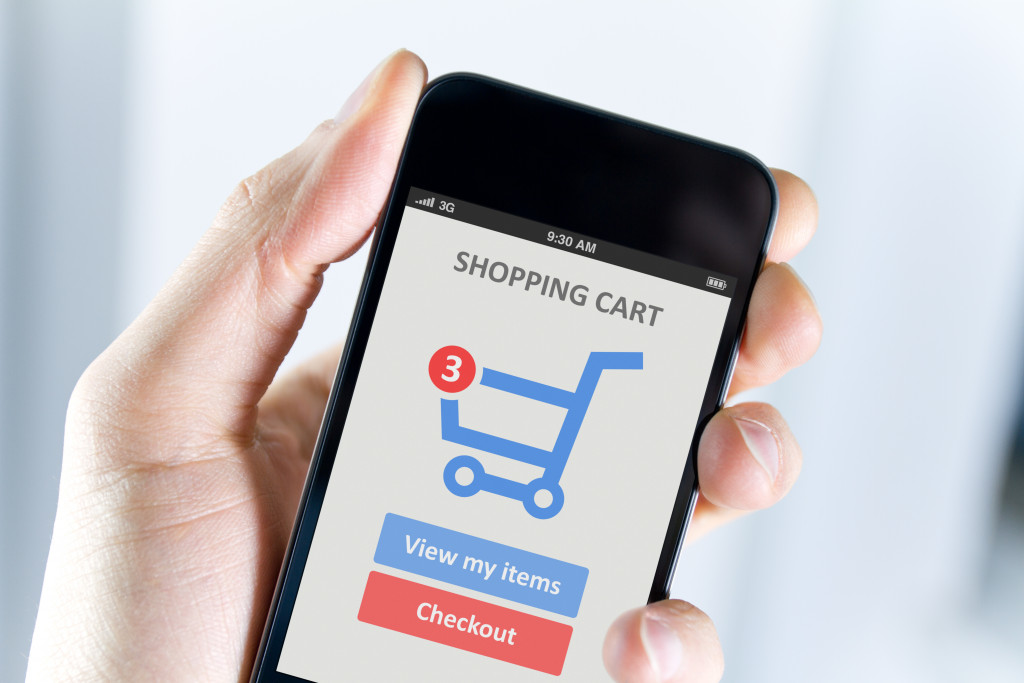In the pandemic, most businesses in the United States shifted online, whether selling products or services. This does not mean that they cannot be sued in real-life courts for faulty products, erroneous services, or data security issues. Companies can lose a lot of money over such lawsuits. It is, therefore, essential to proactively protect the company with all means possible.

Product Liability
According to Weil, before 2019, courts considered e-commerce platforms only as mediators of third-party transactions and did not hold them responsible for injuries or damages caused by items sold on their sites. In 2020, however, in the Bolger v. Amazon.com case involving an exploding battery, the appellate court reversed a lower court decision that freed Amazon from responsibility. The appellate court highlighted that consumers interacted with the company in the Amazon business model rather than the third-party seller. Amazon stored the products, registered them in its system, packaged them, and shipped them to consumers, making it liable for the products.
Choosing high-quality products and reliable suppliers are the foundations of a great e-commerce business. While it may be tempting to sell cheap products that will be attractive to many buyers, this can lead to tragic results. Low-quality electronic equipment can explode or catch fire while being charged. Children’s toys or pets’ toys can fall apart, causing risks of ingestion. Many things can go wrong with various products.
It is also crucial to ensure product safety in warehousing, packaging, and shipping. Companies must use forklift fork covers to prevent puncturing and other product damage. Packages must be well-cushioned and waterproof. Shipping and delivery must be on time with no damage or pilferage.
Would-be entrepreneurs will find it easier to do dropshipping, instead. This business model has more protection from lawsuits because the product is warehoused, packaged, and shipped to the consumer by the main seller. The company doing dropshipping only markets the products online, receives payment, and forwards the order to the seller. This is also less complicated and needs fewer resources.
For further protection, an e-commerce business must have product liability insurance. This will cover the cost of any lawsuit claiming that a product purchased from it has caused physical injury or property damage to someone.
Errors and Omissions in Services
Online businesses selling services can be sued for errors and omissions. Examples are lawyers, doctors, financial services, and even online events coordinators. They can make mistakes, overlook some things while doing the work, provide inadequate service, or become negligent. In addition to hiring highly competent, responsible, and reliable people, a company must also purchase errors and omissions insurance. This will cover the costs of any lawsuits in this regard. The cost of insurance payments is well worth the risk.
Data Consent and Security
The United States Federal Trade Commission (FTC) is authorized to enforce consumers’ data privacy regulations and act against companies that misrepresent their privacy policy or fail to secure sensitive data. According to the National Law Review, the FTC is strengthening its enforcement.
In September 2021, in reaction to the proliferation of apps and devices that collect sensitive health data from consumers, the FTC clarified that developers that collect personal health records (PHR) and are not covered by the Health Insurance Portability and Accountability Act (HIPAA) must immediately inform the Commission and consumers affected in any data breach. Daily fines for violators will be $43,792.
In October 2021, the FTC expanded the meaning of financial institutions to cover finders or companies that link buyers to sellers. All financial institutions must strengthen their data security to protect consumers’ financial data.
All companies must ensure that they comply with FTC regulations and any state regulations on data privacy and security. Data gathering is a powerful tool now used by most companies online, but they must ensure that they clearly ask for each person’s consent before acquiring personal information. Their privacy policy must be visible, easily understood, and transparent. There must also be an option for people to opt out if they wish to.
Once companies have acquired personal information, they are responsible for keeping such information private and safe. They must have a robust and constantly updated cybersecurity program and attack response plan. This is now a basic need for every company.
A breach will not only result in hefty regulatory fines, but it will also ruin the company’s name and reputation. The business will lose current and potential clientele. It will be difficult to bounce back. It is, therefore, best to invest in the best cybersecurity and recovery measures that a company can afford.
Full Protective Coverage
While implementing all preventive measures, e-commerce businesses must also be prepared to hire the best lawyers for their defense in case lawsuits still happen. This will round up the full protection that the business needs.
